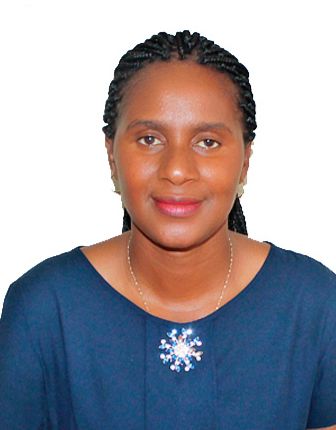

Arminda Marisa Chilembo
Arminda Marisa Chilembo is a University Lecturer at the Assistant level at the Polytechnic Institute of Humanities and Technology of Huambo–EKUIKUI II. She holds a Master's degree in Educational Sciences and Educational Policies from Lusófona University and is currently a PhD candidate in Education, with a research project entitled: Etnomatemática E A Construção Do Conhecimento Matemático: O Sentido Do Número Nos Povos Ovimbundo [Ethnomathematics and the Construction of Mathematical Knowledge: The Meaning of Numbers among the Ovimbundu People]. She is a member of the ReLeCo Public Policies and Governance in Education and the ReLeCo Learning & Innovation.
Advisor: Ana Sofia António
Áreas de interesse académico e científico Areas of academic and scientific interest
- Exact Sciences
- Applied Mathematics
- Statistics and Probability
- Ethnomathematics and Social Sciences
- Continuous Teacher Training and
- Public Policies
Abstract
The traditional mathematical knowledge produced by many of the African people for a long time were inconsiderate for elites of the knowledge, although science had the responsibility of studying the natural and cultural phenomenon, to help those populations less developed to understand the reality and to use the knowledge that they traditionally created. This perception triggered the interest for accomplishing the study in the results of this first phase are presented in this report.
The theme in study “Ethnomathematics and the construction of the Mathematical Knowledge: culture and mathematics sense of the Ovimbundo takes implicit the concern that the teaching and learning of the mathematics, in all the teaching levels, take place through a historical-cultural approach that uses the knowledge produced by these people.
Is the general objective “Verify if the Ethnomathematics practices of Ovimbundo People contribute to the Construction of the Mathematical Knowledge” and is intend to answer to the subject of “How the
Ethnomathematics practices of Ovimbundo People contribute to the Construction of Mathematical Knowledge?” The report is composed for the introduction and four chapters.
The Introduction integrates some of the essential elements of the Theoretical Design (a brief contextualization of the theme, the problematic, the scientific problem, the objectives and working hypotheses). The Theoretical Foundation was distributed in three chapters.
Chapter 1 is dedicated to aspects related to Mathematics Education, the elements that gave rise to it and some of its trends. Also in this chapter, an allusion is made to Ethno Sciences with the purpose of contextualizing Ethnomathematics and approaching it as a trend in Mathematics Education. Finally, this chapter deals with, due to their importance, aspects of Coloniality in the context of Mathematics Education and Ethnomathematics.
Chapter 2 aims to establish the historical, cultural and psychological assumptions behind the construction of Mathematical Knowledge. An allusion is made to the Construction of Logical-Mathematical Knowledge according to Piaget and Logical-Mathematical Thinking, which boils down to a mental construction that is due to different states of abstraction.
In Chapter 3, the theoretical references that support the elements of the culture and mathematics of African peoples are established. Elements of Bantu Culture are treated, meaning that it is one of the largest ethnic groups on the African continent. The Ovimbundu Culture is considered, with the consideration of being the object of this study, and having the characteristics of being considered one of the largest ethnic-linguistic groups in Angola. Ethnomathematics in Angola is approached considering its contribution to Ethnomathematics in Africa through the contribution of the Sona tradition to Mathematics Education in Africa and other parts of the world.
Chapter 4 is dedicated to Methodology, which presents the design chosen to operationalize the research process in all its stages. It begins with a reiteration of some elements of the Theoretical Design presented in the introduction, which includes aspects such as: the research problem, the objectives and the hypotheses formulated, then elements of the Methodological Design are included to describe the approaches that will continue the process research, as well as the different phases that form the strategy that will be used throughout this process.


